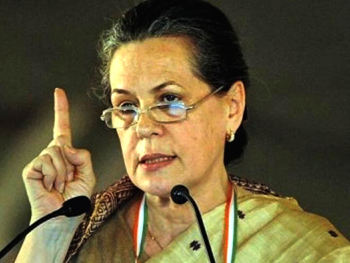New Delhi, Jun 2: Congress president Sonia Gandhi on Monday raised the issue of "distressing rise in incidence of atrocities against Dalits" with Prime Minster Narendra Modi and called upon the government to bring a bill in the monsoon session to tighten the law on atrocities against scheduled castes and scheduled tribes.
 In a letter to Modi, Gandhi called it a "matter of disappointment" that the National Democratic Alliance government had allowed an ordinance, brought by the previous Manmohan Singh government to strengthen the implementation of SCs and STs (Prevention of Atrocities) Act, 1989 among other things to lapse.
In a letter to Modi, Gandhi called it a "matter of disappointment" that the National Democratic Alliance government had allowed an ordinance, brought by the previous Manmohan Singh government to strengthen the implementation of SCs and STs (Prevention of Atrocities) Act, 1989 among other things to lapse.
Gandhi also said that the Modi government did not bring the bill to strengthen the act in the budget session of parliament though the concerned standing committee had given its report in December last year.
"I, therefore, urge you to bring the bill for passage in the upcoming Monsoon Session," she said.
Citing instances of atrocities on Dalits in Bharatiya Janata Party-ruled Rajasthan as also in Maharashtra - where BJP leads the coalition government, she said it was important to have fair and impartial inquiry into the incidents.
"It is also equally important to ensure that the institutional machinery charged with the welfare and protection of Dalits is strengthened and made accountable so that all Dalits are able to access justice as a matter of right," she said.
"I want to bring to your attention the distressing rise in the incidents of atrocities against Dalits across the country. In Nagaur district of Rajasthan, 17 Dalits were mowed down by a tractor by members of another community over a long-standing land dispute. Four Dalits have died while another is critical. Three months earlier, three Dallits were burnt alive in the same district," Gandhi said.
She said the Rajasthan happenings were not an isolated incident. "Other states have witnessed brutal assaults on Dalits such as the shocking instance of a Dalit youth being murdered in Shirdi, Maharashtra, a stone's throw away from the local police station for having an Ambedkar ringtone on his mobile phone," she said.





Comments
Add new comment